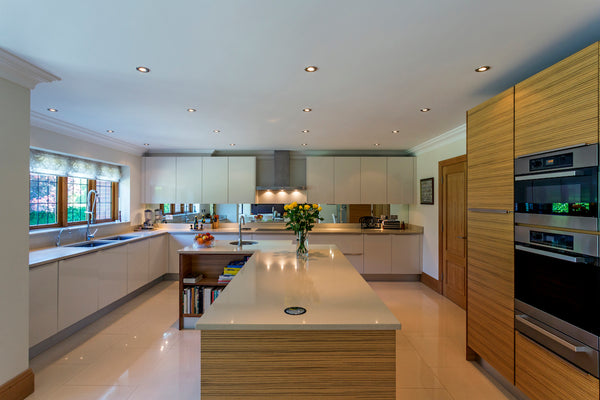Not All Countertops Should Be “Stone”
The materials used for countertops require enormous durability. The qualities of countertops should be resistant to any forms of damage and moisture through frequent usage. Natural stones like granite and marble are the usual choices of homeowners.
Through its reputable durability and decorative appeal, it may also represent the property’s value to a large amount. On the other hand, engineering systems also boast their own improved version of countertop materials – synthetic or man-made countertops stone. It is intended to give alternative choices from natural stones, providing the same stylish look and optimal performance for countertops.
These are slabs manufactured in a facility, laboratory, and factory that are scientifically and technically formulated to respond to the clients’ needs while also possessing the qualities of natural and authentic stones.
More than using cut pieces of natural stones, a new form of innovation where these engineered stones and slabs are made from porcelain, concrete, glass, and laminate debris. These man-made countertops are generally not stone-looking materials but can equate to the elegance and lasting than natural stones, or engineered stones can give. It makes your kitchen and countertops look exciting.
Thus, you can also pair and match it with other decorative elements or colors for your dining area or kitchen designs!
Beyond What Nature Can Provide
Engineered stone and man-made countertops have similar types of durability with much lesser prices than natural stones. As alternatives to natural stones, man-made countertops may have different characteristics and features to consider. The reputation of natural stones like granite is that it is solid and hard without the possibility of being prone to melting, burning, or cracking.
Manufactured stones for man-made countertops may be engineered and formulated to be more durable than natural stone but are easier to damage brought by intense impact, sharp objects, and heat that results in discoloration or melting. Aesthetically, man-made countertops can be cut or manufactured in different edges, thicknesses, dimensions, and shapes.
Man-made countertops are less porous. Since man-made countertops do not have the attributes that natural stone have, it can be designed to bring more convenience to the users. Therefore, the maintenance needed is much slighter. Extensively, it will not accumulate odors and dirt because it is easier to clean and prevents bacteria from staying on its surfaces.
These engineered or manufactured stones are made from quartz crystals that are bound together with a resin-contained chemical making them relevantly strong and compact. Aside from the quality and characteristics, the appearance and physical designs of engineered stones can be customized and modified according to the desired conceptualization of the designer or homeowners.
An example of a completely manufactured stone classification is quartz. Quartz is still made from natural materials, specifically quartz minerals, but it is also bound by resins to form a slab. Mainly, natural stones weigh much higher than engineered ones. The chemical contents of these synthetic stone slabs make the whole piece thinner but equally durable than natural stone slabs. With this, the man-made countertops may only need lighter supports, which can save more money upon constructing your kitchen or bathroom counters.
Should It Be Natural or Man-Made Countertops?
Engineered stones do not require too much maintenance, such as sealing, staining, and varnishing to keep the color and glossiness. It is designed with specifically protective layers before it is manufactured. Moreover, it is normal for both types to be careful upon using it because both natural and synthetic ones also possess vulnerabilities too.
Cleaning the Synthetic stones only needs gently wiping with warm water, a sponge, and a mild soap because it is impenetrable. Its non-porous quality is not prone to severe breakage and does not react to intense heat from pans and pots. To conclude, synthetic stone slabs are less fragile, less maintenance, and highly self-protective than natural ones.
On the other hand, the thought of using natural stones signifies the symbol of exquisiteness and luxury because of its price. Depending on your practicality, choosing between natural or man-made countertops must be confusing.
Disadvantages and advantages are always present in every situation. Hence, the surfaces and structures of the two stone types could be rough or imperfect. Both stone types are attractive and durable.
Selecting which one to use would always depend on your lifestyle, design preferences, activities, and frequency of usage. Choosing between the two is a challenging aspect for homeowners and designers. Furthermore, whether it is natural or mad-made countertops, both would make the best choice.
